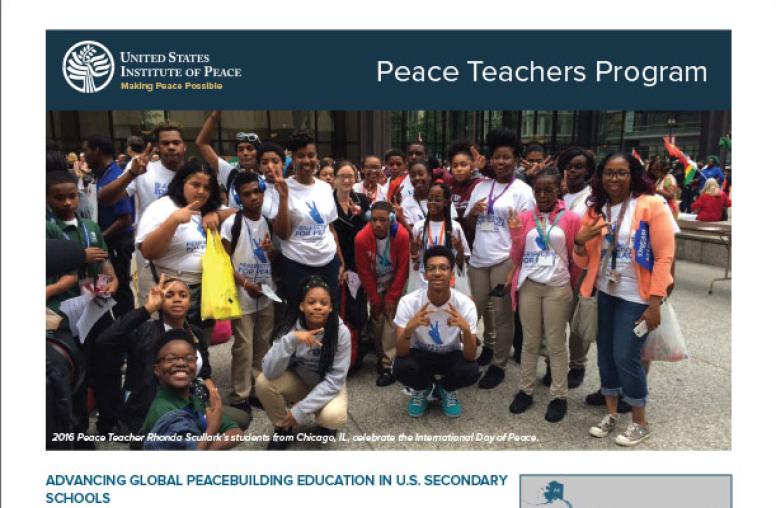Challenging the Axis of Resistance: Syria, Iran and the Strategic Balance in the Middle East
Jay Solomon, foreign affairs correspondent of the Wall Street Journal, and Daniel Brumberg, USIP’s senior adviser in the Center for Conflict Management, examined two of the most significant challenges for the Middle East, Iran and Syria, and the ramifications their interplay has for U.S. regional strategy.

The Iran-Syria alliance poses significant challenges for U.S. diplomacy in the Middle East. Iran’s support for Syria has helped the Assad regime sustain a brutal campaign of repression against the Syrian people, insulating it from the full effect of international and Arab sanctions. Syria’s support for Iran has enhanced Tehran’s regional influence, promoted Hezbollah’s power in Lebanon, and helped to consolidate an “axis of resistance” that has reshaped the strategic balance in the Middle East.
Jay Solomon, foreign affairs correspondent of the Wall Street Journal, and Daniel Brumberg, USIP’s senior adviser in the Center for Conflict Management, examined two of the most significant challenges for the Middle East, Iran and Syria, and the ramifications their interplay has for U.S. regional strategy. The discussion was moderated by Steven Heydemann, senior adviser for Middle East Initiatives at the U.S. Institute of Peace.
This was the third in a series of breakfast briefings titled, "A Year of Turmoil: The Arab Awakening and the Path Ahead." The briefings are organized by the United States Institute of Peace in partnership with the Defense Education Forum of the Reserve Officers Association.
Speakers
- Jay Solomon, Discussant
Foreign Affairs Correspondent
Wall Street Journal - Daniel Brumberg, Discussant
Senior Adviser, Center for Conflict Management
U.S. Institute of Peace - Steven Heydemann, Moderator
Senior Adviser for Middle East Initiatives
U.S. Institute of Peace
Explore Further
- Turmoil in Syria: Reshaping the Middle East?
USIP publishes a series of briefs on how the Syrian uprising is affecting the regional neighborhood



